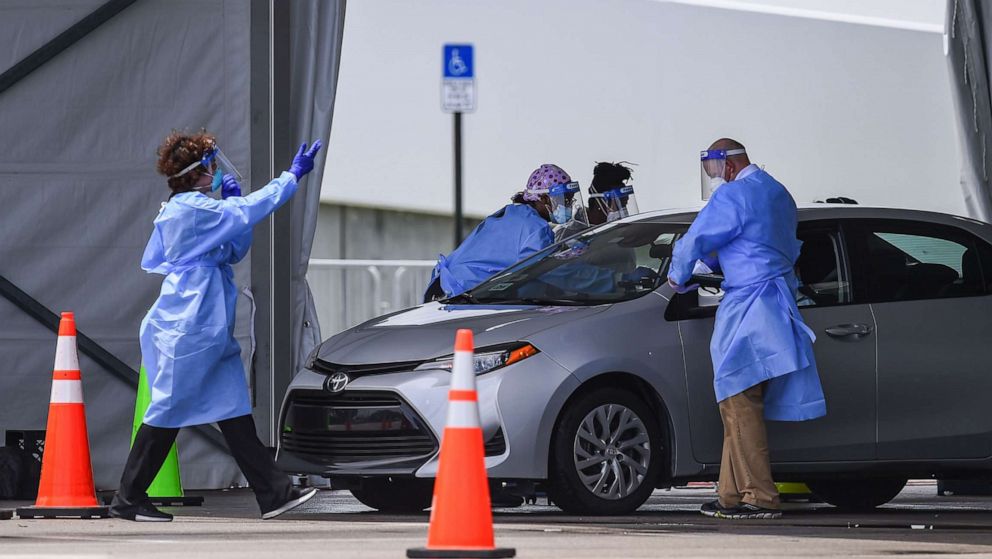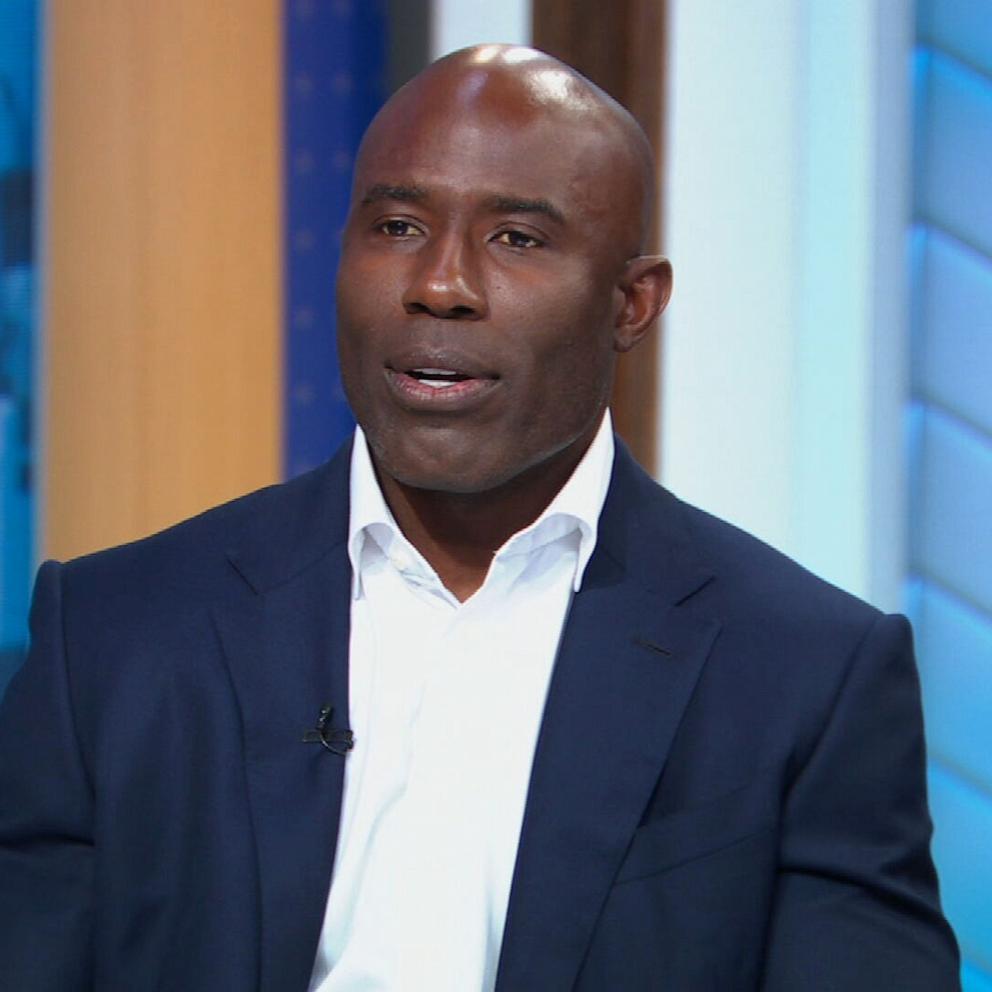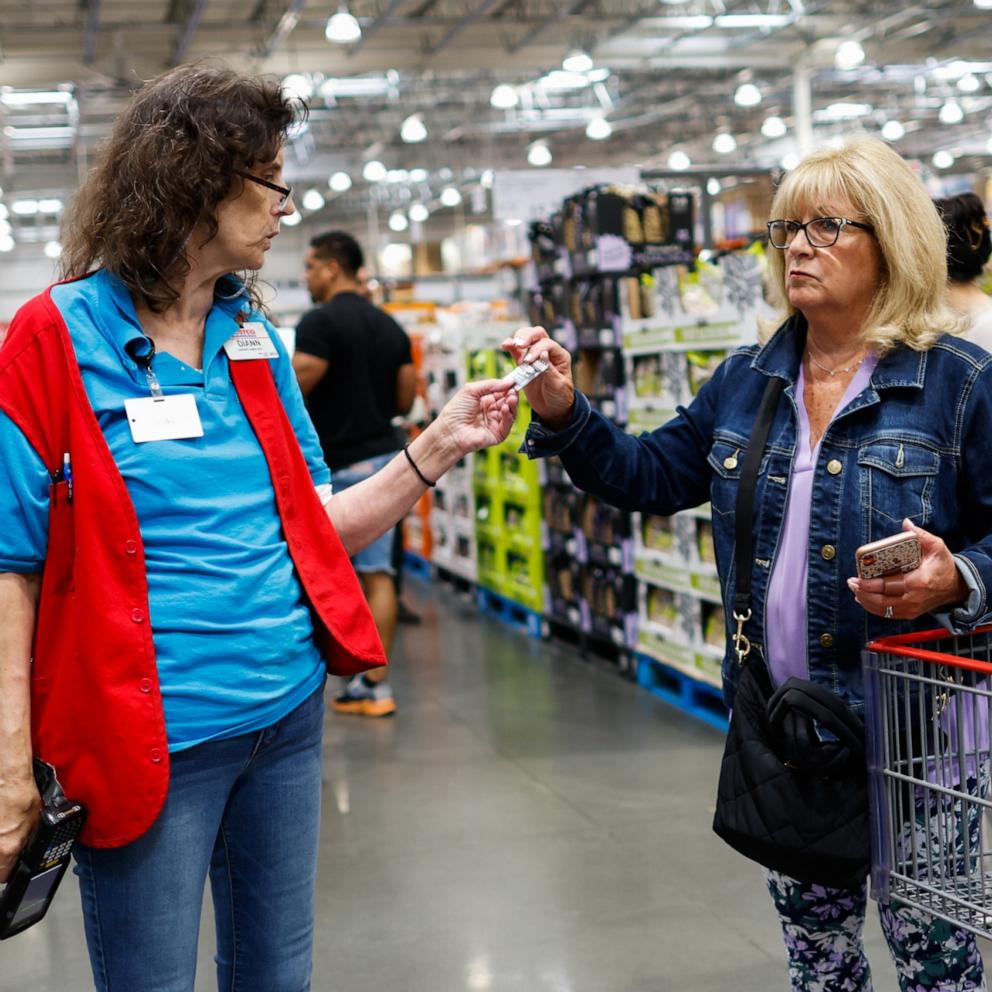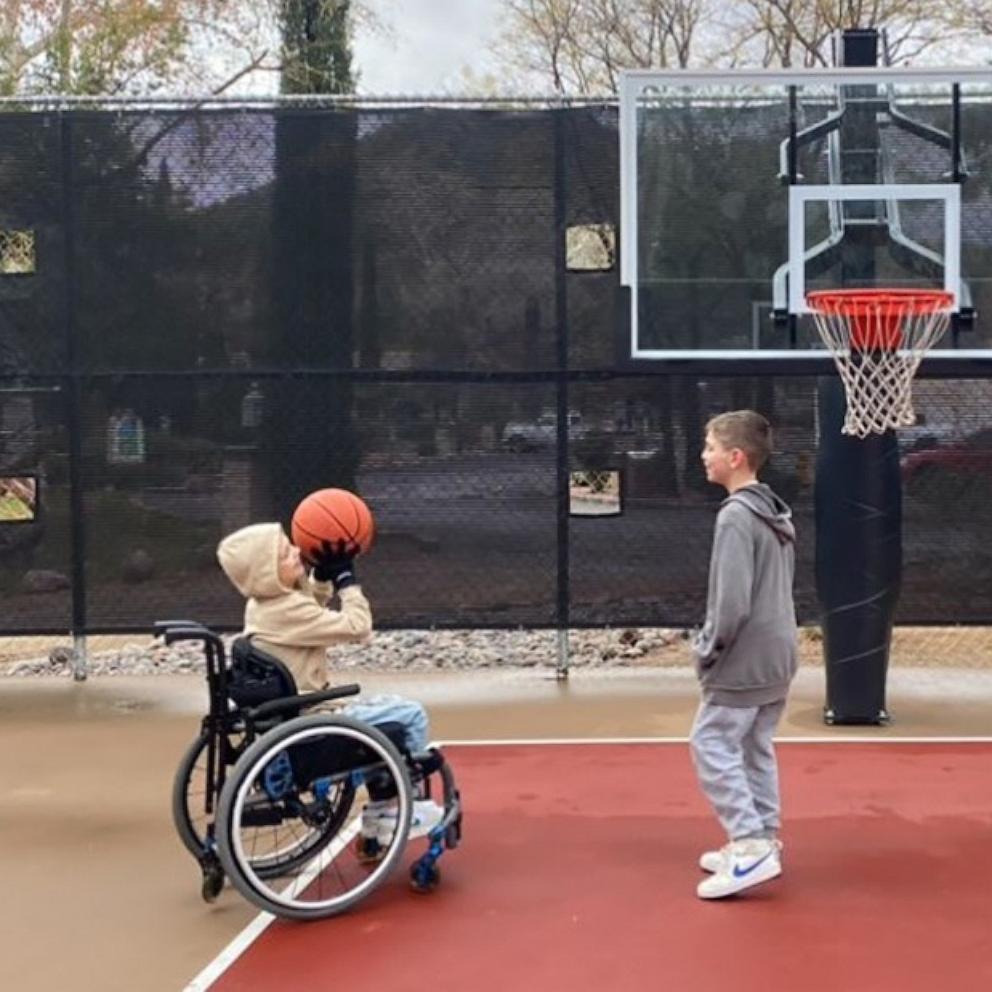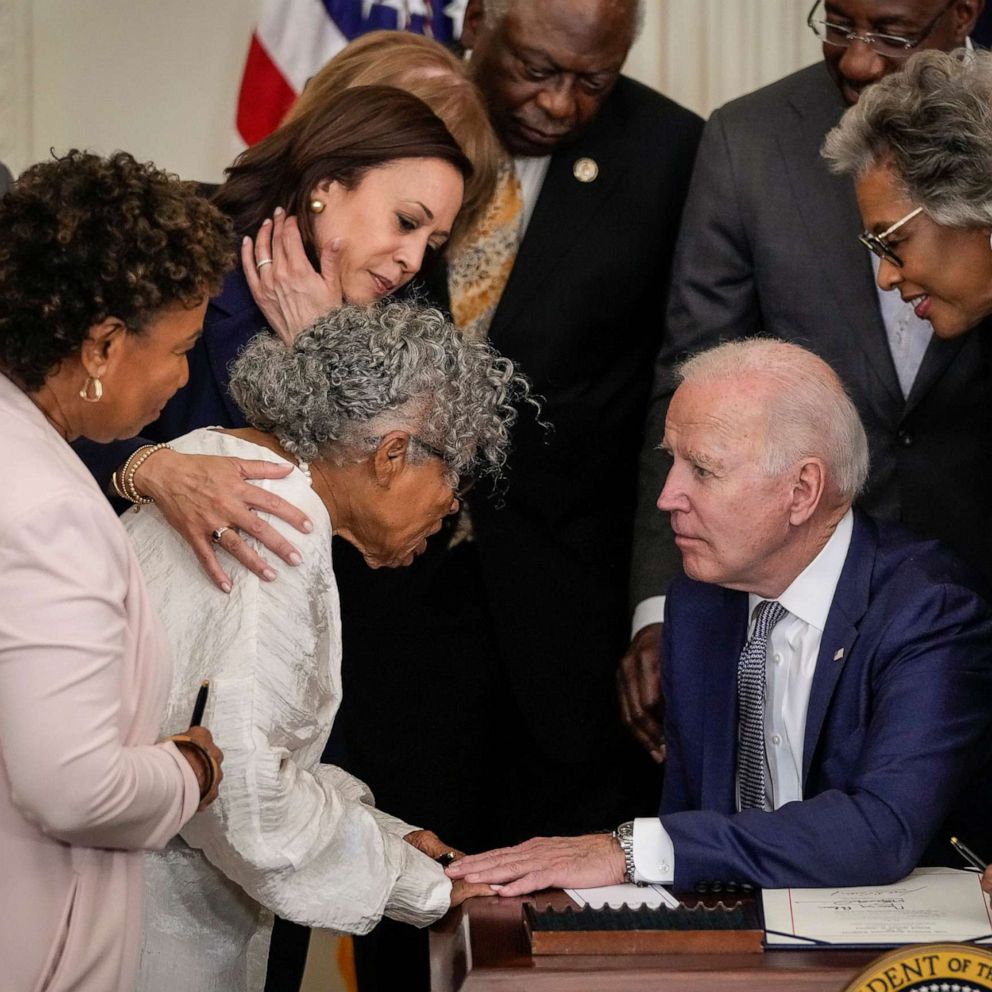5 former CDC directors on where US went wrong in its COVID-19 response
Five former directors of the Centers for Disease Control and Prevention who came together to speak about the coronavirus on Thursday said repeatedly that the United States is still struggling to deal with the pandemic because of one thing: mixed messages from leadership.
"This is the first public health response where the ground rules weren't set up that we would be driven by the best available public health science," said Dr. Richard Besser, who served as acting director of the CDC in 2009. "So, when you have political leaders and public health leaders coming at this with very different messaging, [and] when you don't see the political leadership supporting public health science, you lose trust.
And the people question whether things are being done because they're the right thing to do scientifically or whether they're being done for political reasons, and that leads to an undermining of the efforts to control something that is truly controllable," he added.
Besser, who was also the former chief medical correspondent for ABC News, was joined by Drs. Julie Gerberding, Tom Frieden, Jeffrey Koplan and David Satcher to speak with ABC News' Linsey Davis. The former CDC directors, who worked under both Democratic and Republican administrations, also spoke about preventing the next pandemic and about the challenges Americans will face even once a vaccine is approved.
They said the country's best chance at stopping the virus is by working together.
"Right now, one person a minute is getting killed by this virus in the U.S., and we need to focus on what the virus is doing and what we as a community are doing to stop it," said Frieden, who was the CDC director from 2009 to 2017. "Because all of us can do things to make it less severe, whether that's wearing a mask, washing our hands, watching our distance or supporting public health so that they can box in virus… and protect the most vulnerable.
There's a lot we can do," he continued. "Progress is in our hands, but when it's undermined, it makes it very difficult to make progress."
"This pandemic is not something that's going to end abruptly," said Satcher, who was the CDC director from 1993 to 1998. "The problem is going to be with us for a while in terms of COVID, so the question becomes: When are we going to get on top of it? When people take seriously the challenge."
The U.S. death toll from COVID-19 is higher than anywhere else in the world with at least 159,000 deaths. Nearly 5 million Americans have been diagnosed with the virus. As 31 states see a rising number of daily deaths and 25 states see increasing rates of positive cases, President Donald Trump in recent weeks claimed the U.S. has the virus "under control" and that the country is in "really good shape."
"Every one of those falsehoods drives away our opportunity to improve our mitigation efforts… and it causes confusion in everyone's mind," said Koplan, who directed the CDC from 1998 to 2002.
He said that even when the information needs "sugarcoating or even if it's something that seems bad news and people will be upset, the truth is really what counts."
"Once you lose that edge, then you're behind not just the virus -- you're behind the public opinion and people's behavior," he added.
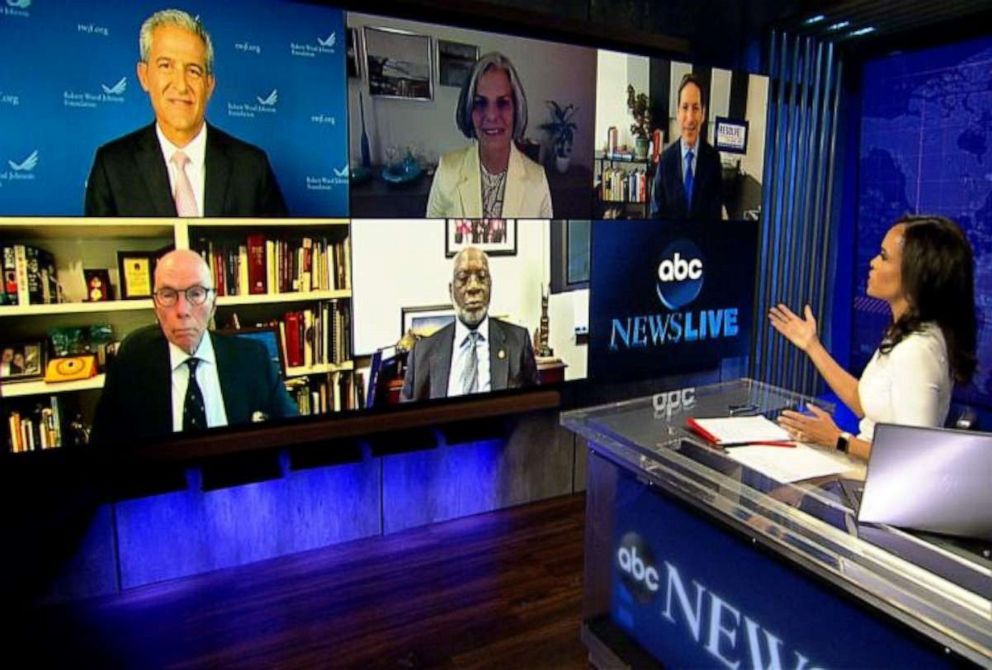
Besser noted that early in the pandemic, when officials first began press briefings on the virus, there was a disconnect between the perceived severity of the outbreak. On Jan. 31, CDC director Robert Redfield told reporters that the "risk to American public currently is low."
The CDC's National Center for Immunization and Respiratory Diseases Director Nancy Messonier had said during a press briefing days earlier, on Feb. 25, that "disruptions to everyday life may be severe" from closures.
"By engaging the public every day, the public would be able to understand what is CDC learning, what is the public health community, globally, learning. And you can go along that journey so that it's not left standing out there that there's no worry here, because information very quickly started to come in that this would be a threat," Besser said. "And as soon as CDC states that, CDC was sidelined. It was no longer allowed to do the briefings."
"So, a point in time taken out of context… can look very strange," he added, "but if there'd been an ongoing dialogue and conversation with our public health leaders, it would [have been] part of that journey."
The former directors also said the U.S. needs to take a more proactive stance in preventing the next pandemic. Gerberding recently co-chaired a report titled "Ending the Cycle of Crisis and Complacency in U.S. Global Health Security."
"If you look at the tenure of the CDC directors that are participating in this conversation, each one of us has presided over some kind of important public health outbreak, whether it was AIDS or anthrax or SARS or Avian influenza or Ebola. We've all gone through the cycle of the crisis," she said.
"The reactive investment, the incredible focus and attention for a short period of time," she continued. "And then the absence of the sustained budget and support for really strengthening our public health system at the state local level, engaging with our health systems and getting the countermeasures and the equipment we need into our national stockpile to truly be prepared."
"We have to be proactive," said Frieden. "We have to build in peacetime so that we're more prepared when we're fighting a war against a virus or other microbe."
Frieden said that even when a vaccine is approved, "COVID will still be there." He said a vaccine is only one part of the response.
"It's not a magic thing," he said. "We still have 100,000 deaths a year from measles, and the vaccine against measles is one of the best we have. So a vaccine is, by all means, the single most important thing we could have to fight COVID."
Both Frieden and Satcher also pointed out the complexities of presenting a vaccine to the public, namely that "there's so many people who don't trust vaccines."
Frieden and Besser said they're worried Americans are becoming complacent with the inadequate response to the pandemic.
"I'm worried about getting too used to the horrible result we're getting," Frieden said. "We are a global laggard and we need to change our approach. We need to up our game and get ahead of the virus."
Nevertheless, each of the doctors expressed optimism that the U.S. will eventually overcome the pandemic.
"We will recover, but the question is: How long will it take?" Gerberding said. "While we're maintaining our physical distance, we need to come together as communities, as health leaders, as nations around the world to really say we've got to work collaboratively. That's a tall order in this very divided world, but it's about the pandemic. It's not about politics."
